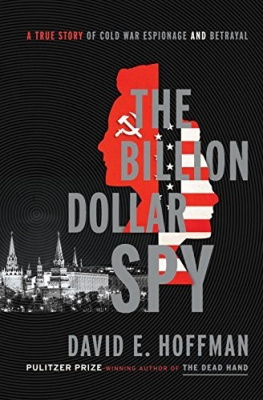Rodney Barker
DANCING WITH THE DEVIL
SEX, ESPIONAGE AND THE U.S. MARINES:
THE CLAYTON LONETREE STORY
This one goes out to Tom Barker and Jean Fortner, my father and mother, who extended our family to include other people from other cultures around the world.
Passion, and passion in its profoundest, is not a thing demanding a palatial stage whereon to play its part. Down among the groundlings, among the beggars and rakers of the garbage, profound passion is enacted. And the circumstances that provoke it, however trivial or mean, are no measure of its power.
HERMAN MELVILLE,
Billy Budd
The call came early one morning in the fall of 1993. I was told authorization had been given for me to view the previously classified videotape of the intelligence debriefing that Sgt. Clayton Lonetree submitted to after he was convicted of committing espionage, and for a private screening I should show up at the headquarters of the Naval Investigative Service at 10:30 A.M.
The news had been shocking when it was announced in January 1987. A United States Marine security guard at the American Embassy in Moscow, a twenty-five-year-old American Indian by the name of Clayton Lonetree, had confessed to being seduced by a beautiful Russian woman named Violetta and initiated into the espionage business by a high-ranking KGB officer who posed as her Uncle Sasha. And when the subsequent investigation indicated that even more Marines had been compromised by KGB beauties, forming a spy ring that had allowed Soviet agents to enter the code room at the embassy with disastrous consequences to national security, coming in the wake of a series of major spy cases, this one seemed bigger than any of the others. Government spokesmen touted it as the most serious espionage case of the century.
Then something very strange happened. After a series of Chicken Little pronouncements, officials began to scale back their damage estimates. Press reports suggested the investigation had been mishandled. The focus shifted from Marine olive drab to State Department pinstripes, with allegations that the Corps was being asked to pay for the sins of negligence on the part of American diplomats. Soon it was conceded that the sanctity of the code room may not have been violated after all.
When espionage charges were dropped against everyone except Sergeant Lonetree, who was convicted of spying at a military court-martial, the dramatic reversal was complete.
Spy stories were not supposed to end this way. The satisfaction that came at the conclusion of any good espionage thriller, in which the guilty were exposed and put behind bars for life and the world was again safe for democracy, was missing. The Sex-for-Secrets Marine Spy Scandal, as the media billed the case, stood out as an ambiguous variant to the usual stories that came in from the cold.
It was obvious to any discerning observer of national affairs that there were levels of mystery to this story that had yet to be revealed. The untidiness of the Lonetree affair left nagging questions: What moved Sergeant Lonetree to the deeds that brought his convictions? What went wrong with the government response that kicked in when it appeared that espionage had been committed? What precisely was the impact of the Lonetree affair on national security?
Then there were the lingering questions known only to the Soviets: What kind of planning had gone into the recruitment of Lonetree? In the minds of the KGB, how valuable a spy was he? How did they rate the overall outcome of the operation? Was he the only Marine recruited?
Perhaps most tantalizing were the questions swirling around the beautiful Russian woman who seduced Lonetree. Her name was Violetta Seina, and she was described as tall and lithe, gray-eyed and Garboesque in demeanor. Spymasters were convinced that Violetta was a swallowa lovely female who used sexual favors to lure foreigners into the honey trap. But the way Lonetree described their relationship, they were two young people, each educated to fear and distrust the other, who simply found love in the wrong place.
Clearly, this was a story that cried out for independent scrutiny. It was unfinished. Its intrigues had only been superficially scratched. And having followed the story in the press, I wanted to be the one who took it on, the one who dismantled and inspected its parts and determined whether an injustice had taken place.
But the timing wasnt right. I knew that for me to get at the underlying truths of a story like this, time would have to pass. Key people in the military and intelligence community would have to retire before they could talk freely, and classified material would have to go through review processes. Most important, there would have to be the kind of change in superpower relations that would allow for research opportunities in the Soviet Union.
With the meltdown of the Soviet empire, the last of those conditions was met. In the way other investigative writers have gone back to celebrated cases in criminal annals, turning up new information, tracking down surprise witnesses, and presenting them to the court of public opinion, I decided to reopen the Marine Spy Scandal. I moved from my home in Santa Fe to Washington, D.C., and initiated a two-year inquiry that included a two-month stint at the scene of the crime: Moscow.
Now I felt that I knew certainly not everything, but more than any other individual on earth about what really happened. One of the few pieces of the puzzle I had yet to examine, however, was Lonetrees post-trial intelligence debriefing. A specially trained NIS agent went eyeball to eyeball with Lonetree, Id been informed, and cleaned him out. It was a provocative characterization, which explained why I felt the chance to view the videotape of the debriefing was as important to my research as the original interrogation had been essential to the intelligence communitys assessment of the damage hed done.
After a uniformed sentry at the gate to the Washington Navy Yard checked my drivers license, I navigated a maze of brick buildings that had stood since this was a shipbuilding facility, parking in a lot along the Anacostia River that was a short walk to the administrative headquarters of the Naval Investigative Service. At a counter on the second floor I identified myself, and several minutes later a door opened and I was shaking the hand of John Skinner (not his real name), a special agent of the Naval Investigative Service whose expertise was counterintelligence. Skinner had played a prominent investigative role in the Marine Spy Scandal. He was Lonetrees interrogator.
With a visitors badge clipped to my shirt pocket, I followed Skinner up a stairwell and down a corridor to his office, where a VCR had been set up on one side of his desk. After Id taken a seat, Skinner set the scene for me. What I was about to witness had been taped through a one-way mirror by a stationary video camera and broadcast live to the representatives of an alphabet soup of intelligence agencies, who had been sitting in an adjoining room with notepads in handNSA (National Security Agency, CIA (Central Intelligence Agency), DOS (Department of State), DOJ (Department of Justice), FBI (Federal Bureau of Investigation), DOD (Department of Defense), NIS (Naval Investigative Service). Hundreds of hours were recorded, and the highlights were edited into a counterintelligence training tape that began, as I would soon see, with Sergeant Lonetrees admission of contemplated suicide just days before he voluntarily surrendered to American authorities.
A moment later the black-and-white image of a young Marine appeared on the TV monitor. He wore camouflage utilities and was leaning back in a chair with his hands locked behind his head. His wide, flat cheeks and ethnic features identified him as an American Indian, the high-and-tight military haircut adding a Mohawk touch. At the moment he seemed calm and relaxed, like someone who had kicked back and was spinning a good yarn.













